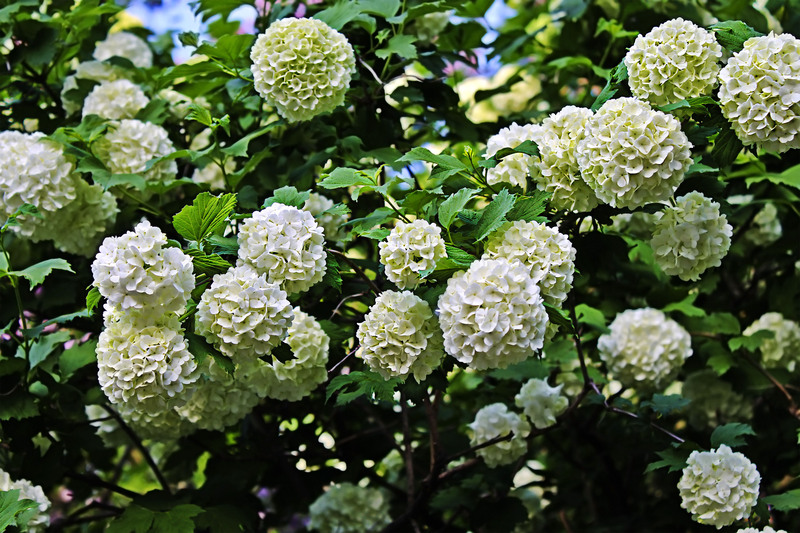Dive into the World of Gardening with 9 Tips for Beginners
Posted on 20/09/2025
Dive into the World of Gardening with 9 Tips for Beginners
Are you ready to dive into the enchanting world of gardening? Whether you have a spacious backyard or a tiny balcony, gardening for beginners is an adventure filled with happiness, beauty, and lifelong learning. This comprehensive gardening guide will equip you with nine essential tips that every new gardener should know, empowering you to cultivate a flourishing, healthy garden from the ground up.
Why Start Gardening?
Gardening isn't just a rewarding hobby--it's a doorway to improved well-being, healthier lifestyles, and even environmental stewardship. Beginners in gardening often find themselves soothed by the rhythmic nature of planting, nurturing, and watching as life slowly emerges from the soil. From the fresh herbs and vegetables grown on your windowsill to the vibrant flowers transforming your outdoor space, gardening offers countless tangible and intangible rewards.

9 Essential Gardening Tips for Beginners
Before you sink your hands into the earth, it helps to gather some foundational knowledge. Here are nine crucial gardening tips for beginners that will set you on the path to a thriving garden:
1. Start Small and Expand Gradually
One of the most common mistakes aspiring gardeners make is aiming too high too quickly. If you're just entering the world of gardening, start small--perhaps with a couple of pots or a small raised bed. This will allow you to test your skills, learn as you go, and avoid feeling overwhelmed.
- Choose 3-5 easy-to-grow plants that suit your climate and gardening space.
- Container gardening is a great place to begin for urban gardeners or those short on space.
2. Understand Your Gardening Zone and Climate
Every location has a unique climate and plant hardiness zone. Knowing yours is fundamental so you can select plants that thrive in your environment. Research your local gardening zone using resources such as the USDA Plant Hardiness Zone Map or consult local gardening centers.
- Plants like tomatoes or basil require warm conditions, while lettuce and kale can tolerate cooler temperatures.
- Local extension offices or gardening clubs can offer tailored advice specific to your region.
3. Pick the Right Spot -- Sunlight Is Key
Most vegetables, herbs, and flowers need at least 6-8 hours of direct sunlight daily to flourish. Observe your outdoor space throughout the day and choose the sunniest spot for your new garden.
- When starting your garden, avoid areas shaded by trees or buildings.
- If indoors, place pots near south-facing windows for maximum sunlight.
4. Invest in the Right Gardening Tools
Having the right tools streamlines the gardening process and prevents injury. You don't need to break the bank but investing in the basics is worthwhile.
- A sturdy trowel, hand fork, gloves, watering can, and pruners are essential for beginners.
- Quality over quantity: Well-made tools last longer and make tasks easier.
5. Feed Your Soil -- The Foundation of Every Thriving Garden
Healthy plants start with healthy soil. As a gardening novice, it's crucial to understand your garden's soil type (sandy, clayey, loamy) and amend it with compost or well-rotted manure where necessary. Rich, well-fed soil ensures plants get the nutrients they need.
- Use a home soil test kit to determine pH and nutrient levels.
- Add organic matter regularly to boost soil structure and fertility.
6. Choose Easy-to-Grow Plants for Your First Garden
As a beginner, select plants known for being resilient and easy to care for. This increases your chance of early success and builds your confidence.
- Vegetables: Radishes, lettuce, bush beans, and zucchinis are ideal for novice gardeners.
- Flowers: Marigolds, sunflowers, and zinnias are forgiving choices that bloom with little fuss.
- Herbs: Basil, mint, and chives thrive in pots or garden beds alike.
7. Master the Art of Watering
Proper watering techniques are the cornerstone of lush, healthy plants. Overwatering can cause root rot, while underwatering leads to dry, stunted growth. The aim is to keep the soil consistently moist, but not soggy.
- Water early in the morning to minimize evaporation and prevent diseases.
- Stick your finger an inch into the soil; if it feels dry, it's time to water.
- Group plants by water needs for easy maintenance and to conserve water.
8. Be Patient and Observe Your Plants
Gardening is as much about patience and observation as it is about technique. Notice how your plants respond to sunlight, water, and feeding. Observing closely helps you spot pests, diseases, and nutrient deficiencies early--enabling timely corrections.
- Keep a gardening journal to record changes, successes, and challenges.
- Don't be discouraged by setbacks--they are part of the gardener's journey.
9. Connect with Other Gardeners and Keep Learning
The world of gardening is vast, and connecting with fellow enthusiasts can transform your experience. Share tips, ask questions, or join a local gardening club.
- Online forums and social media groups are treasure troves of advice and inspiration.
- Invest in books and workshops for continuous improvement.
Bonus Tips: Common Mistakes Beginner Gardeners Should Avoid
- Don't overcrowd plants: It's tempting to squeeze in as many plants as possible, but overcrowding leads to weak growth and increased disease risk.
- Neglecting soil health: Healthy soil equals healthy plants.
- Ignoring plant labels: Always read seed packets or labels for spacing, light, and water needs.
- Forgetting about pests and diseases: Regular checks can prevent small problems from becoming large infestations.
Essential Tools Every Gardening Beginner Needs
- Trowel: For digging small holes and transplanting seedlings.
- Hand fork: Helpful for breaking up soil and removing weeds.
- Pruning shears: For trimming stems and snipping herbs.
- Gardening gloves: Protects your hands from thorns and dirt.
- Watering can or hose: Efficient watering is vital for healthy plants.
- Garden kneeler or pad: Makes weeding more comfortable.
Choosing Your Garden Style: Possibilities for Every Space
Whether you have a windowsill, patio, or vast backyard, there's a garden style to suit your needs.
- Container Gardens: Perfect for small spaces; you can grow herbs, flowers, and even tomatoes in pots.
- Raised Beds: Offer excellent drainage, ideal for vegetable gardening for beginners.
- Vertical Gardens: Use trellises or wall planters to save floor space.
- Traditional In-Ground Beds: Great for bigger projects and maximum productivity.
Seasonal Planning for New Gardeners
An essential but often overlooked gardening tip for beginners is to plan around the seasons. Here are some guidelines:
- Spring: Start seeds indoors or sow cool-season crops like peas and lettuce.
- Summer: Plant heat-lovers--think tomatoes, peppers, and sunflowers.
- Fall: Time for root vegetables, leafy greens, and bulb planting.
- Winter: Focus on garden clean-up, starting a compost pile, and planning for the coming year.
Benefits of Gardening for Beginners
- Physical Exercise: Digging, planting, and weeding offer gentle, effective workouts.
- Mental Well-being: Studies show gardening reduces stress and boosts mood.
- Healthier Diet: Growing your own vegetables encourages fresh, nutritious meals.
- Eco-Friendly: Home gardens increase biodiversity and reduce reliance on commercially shipped produce.
- Community Connection: Sharing your bounty or gardening experience connects you with neighbors and friends.
Quick Gardening Glossary for Newbies
- Annual: Plants that complete their life cycle in one season (e.g., radishes).
- Perennial: Plants that return year after year (e.g., chives, some flowers).
- Sowing: Planting seeds.
- Mulching: Covering soil to retain moisture and suppress weeds.
- Thinning: Removing extra seedlings to ensure proper spacing.

Frequently Asked Questions: Gardening for Beginners
- Q: How often should beginners water their gardens?
A: Most plants prefer deep, infrequent watering. Check your soil's moisture regularly and adjust based on weather and plant needs. - Q: What are the easiest vegetables for new gardeners?
A: Lettuce, radishes, beans, and zucchinis are all beginner-friendly choices. - Q: How do I prevent pests organically?
A: Use mulch, attract beneficial insects (like ladybugs), and regularly check plants for signs of infestation.
Conclusion: Begin Your Gardening Journey with Confidence
Diving into the world of gardening doesn't have to be daunting. By following these nine expert tips for beginners--from starting with just a few plants, to understanding your climate, nurturing your soil, and staying patient--you'll be enjoying the many joys of gardening in no time. Remember, every gardener started as a novice, and every thriving garden began with a single seed. So grab your trowel, pick your favorite plants, and get ready to watch life bloom before your eyes!
Happy gardening, and may your horticultural journey be as lush and rewarding as the gardens you grow!
Latest Posts
A gardener's guide to dynamic container planting
Create Lasting Memories with a Family-Centric Yard
The Art of Orchid Care: Secrets for Success
Defending Your Plants Against Frost: Winter Gardening Insights

